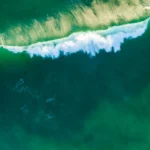This is not a Science Fiction movie but Scientists have found evidence for rain on an exoplanet. But don’t get too excited for the prospect of life on this world, since, instead of water, the rainfall consists of extremely hot vapor droplets of iron.
Researchers at the University of Geneva in Switzerland announced these new findings on March 11, 2020. They were also published in a peer-reviewed paper in the journal Nature on March 11.
The giant planet, called WASP-76b, is about 640 light-years away in the constellation Pisces. (The distance is based on more recent data, as noted in the press release; previously the distance was listed as 390 light-years). Since it receives thousands of times more radiation from the sun than Earth does, the planet is extremely hot, with temperatures reaching 4,350 degrees Fahrenheit (2,400 degrees Celsius) on its day side. The planet is also tidally locked; it keeps one face to its star, much as our moon always has one side facing Earth.
The temperatures on planet WASP-76b are scorching, high enough for metals to be vaporized. Molecules can be separated into their individual atoms, and metals like iron can literally evaporate. As David Ehrenreich at the University of Geneva, who led the study, said in a statement
The night side of the planet is cooler – “only” about 2,730 degrees Fahrenheit (1,500 degrees Celsius) – and winds carry the iron vapor from the day side to the night side.
The day and night sides are different not only according to temperature, but also chemistry. Scientists used the Echelle SPectrograph for Rocky Exoplanets and Stable Spectroscopic Observations (ESPRESSO) instrument on ESO’s Very Large Telescope (VLT) in the Chilean Atacama Desert to measure the chemical variations between the day side and night side. Iron vapor was detected at the evening border between the day side and night side. The researchers think that the iron condenses into clouds when it reaches the darker, cooler night side of the planet. It then literally rains liquid iron on the night side. According to Ehrenreich.








